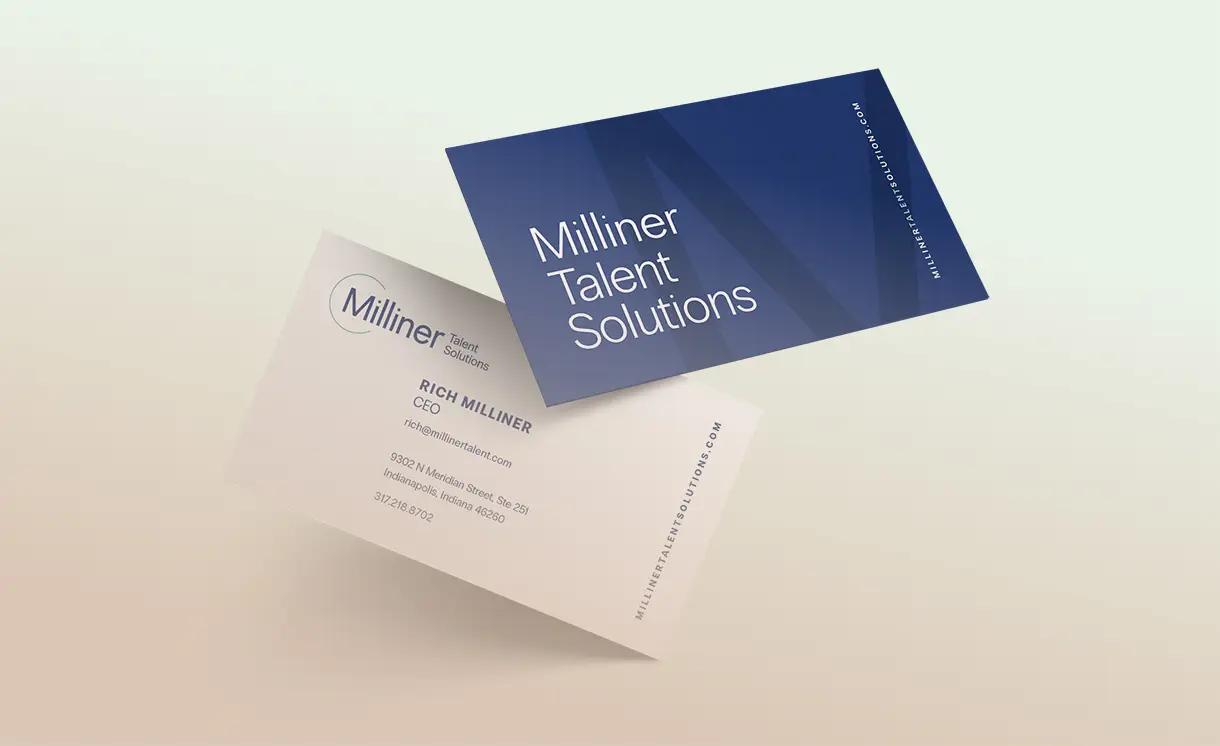Good news! At Milliner Talent Solutions, our recruiters have recognized your strengths and abilities, and we’ve proudly presented your resume and qualifications to a prospective employer. Now, it’s time to take the next step: the job interview.
Feeling nervous is completely normal, especially when it’s a role you’re excited about. That’s where Milliner Talent Solutions comes in—we’re here to set you up for success. We provide you with tailored insights about the position and employer, along with expert interview tips and practice questions to help you shine. Preparation is key, and we’re with you every step of the way to ensure you’re ready to make a great impression. Here are some examples of the guidance you can expect:
Please note: While the examples of interview responses are from someone seeking an accounting role, the approach and tone are appropriate for any position.
1. Tell me about yourself.
Purpose:
This question gives interviewers a snapshot of who you are and helps them see how your experience fits the role.
How to Respond:
- Keep it short and focused on your career journey.
- Highlight key achievements relevant to the job.
- Wrap up with what excites you about this opportunity.
Example:
“Sure! I’ve been working in accounting for about four years now. In my current role, I handle everything from managing monthly financial reports to reconciling accounts. One project I’m really proud of was streamlining our accounts payable process, which cut processing time by 25%. I’m excited about this position because it would give me the chance to dive deeper into financial analysis and work with a larger, more collaborative team.”
2. Why do you want this job?
Purpose:
The interviewer wants to see that you’re genuinely interested in the role and that you’ve done your homework.
How to Respond:
- Mention what you like about the company and how it aligns with your experience or goals.
- Be enthusiastic about the opportunity for growth or learning.
Example:
“I’ve heard great things about your company’s work culture and emphasis on continuous learning. I enjoy working with financial data, and I see this role as the perfect opportunity to build on my experience in budgeting and reporting while gaining more exposure to forecasting and audits. Plus, I love the idea of being part of a team where I can make a real impact.”
3. What are your strengths?
Purpose:
This question helps the interviewer understand how your strengths align with the role.
How to Respond:
- Focus on strengths relevant to the job.
- Back them up with examples of how you’ve used them effectively.
Example:
“I’d say one of my biggest strengths is my attention to detail. In accounting, it’s so important to catch even the smallest errors, and I’ve always been that person on the team who enjoys double-checking things. For example, I recently found a discrepancy in one of our client invoices that could’ve led to a $10,000 overpayment. Catching that early not only saved money but also strengthened our relationship with the client.”
4. What is your greatest weakness?
Purpose:
The goal is to show self-awareness and demonstrate a willingness to grow.
How to Respond:
- Pick a real weakness but show how you’re working to improve.
- Avoid mentioning anything critical to the role.
Example:
“I used to struggle with getting too caught up in the details, which sometimes slowed me down on larger projects. Lately, I’ve been working on managing my time better by setting deadlines for each task, so I stay on track without losing sight of the big picture. It’s still a work in progress, but I’m getting better at balancing precision with efficiency.”
5. Why are you leaving your current job?
Purpose:
Interviewers want to understand your motivation for leaving and ensure you’re moving forward for the right reasons.
How to Respond:
- Keep it positive and focus on what you’re looking for next.
- Avoid criticizing your current employer.
Example:
“I’ve really enjoyed my time at my current company and learned a lot, but I’m looking for a new challenge. I want to grow my skills in financial analysis and forecasting, and this role seems like the perfect next step. Plus, I’m excited about the opportunity to work with a larger team and learn from different perspectives.”
6. How do you handle conflict at work?
Purpose:
This question helps employers see if you can manage disagreements productively.
How to Respond:
- Use a real example and explain how you approached the situation.
- Highlight your communication skills and problem-solving approach.
Example:
“There was a time when a colleague and I disagreed over how to allocate expenses across departments. Instead of letting it turn into a bigger issue, I suggested we sit down, go over the data, and understand each other’s perspectives. In the end, we found a compromise that made sense, and it actually improved our reporting process moving forward.”
7. Where do you see yourself in five years?
Purpose:
Employers want to know if your long-term goals align with the company’s growth and opportunities.
How to Respond:
- Be honest but flexible.
- Show ambition and an openness to grow within the company.
Example:
“In five years, I’d love to have grown into a senior accounting role, possibly leading a small team. I’m also interested in gaining more experience with auditing and financial planning along the way. What’s exciting to me about this role is that it seems like a great opportunity to build those skills and grow with the company.”
8. How do you prioritize tasks when you have multiple deadlines?
Purpose:
This question assesses your time management skills and how you perform under pressure.
How to Respond:
- Describe your organizational methods (like to-do lists or project management tools).
- Use a real example if possible.
Example:
“When I have multiple deadlines, I start by listing out all my tasks and organizing them by priority and due date. If anything urgent comes up, I’ll adjust my schedule, but I make sure to communicate any changes to my team. For example, last quarter, I had to juggle closing the books while preparing for an audit, so I broke everything into smaller steps and tackled them one by one, which helped me stay on top of both.”
9. Tell me about a time you failed.
Purpose:
This helps employers understand how you handle setbacks and whether you learn from your mistakes.
How to Respond:
- Be honest but focus on what you learned.
- Use the STAR method (Situation, Task, Action, Result).
Example:
“During my first year in accounting, I missed a reporting deadline because I underestimated how long the reconciliation process would take. It was a tough lesson, but I owned up to it and made sure to create a more detailed timeline for future reports. Since then, I’ve never missed another deadline, and I’ve become much better at estimating how long tasks will take.”
10. Do you have any questions for us?
Purpose:
This question helps the interviewer gauge your curiosity and commitment to the opportunity. It’s also your chance to demonstrate that you’ve thought seriously about the role and the company.
How to Respond:
Ask thoughtful questions that reflect a genuine interest in the role, the team, or the company’s future. Focus on topics that allow you to better understand the position and the company culture.
Examples:
- “Can you tell me more about the team I’d be working with and how they collaborate?”
- “How does the company support employee growth and professional development?”
- “What’s something you enjoy most about working here?”
These types of questions help you learn more about the role and the company while also leaving a positive impression. Asking about the team, company culture, or success metrics shows you’re thinking ahead and seriously considering how you’ll fit into the organization.
Final Thoughts
At the end of the day, preparation really is the key to interview success. Practicing your answers out loud can help you feel more comfortable and confident when the big moment arrives.
Remember, it’s not just about giving the “right” answers—it’s about showing who you are, what you care about, and how you can bring value to the role. Be sure to tailor your responses to the specific company and position, so they know you’ve done your homework.
Also, keep in mind that interviews aren’t just for the employer to decide if you’re the right fit. This is your chance to figure out if this role and workplace feel like the right match for you—whether it aligns with your career goals, values, and personal growth.
Take a deep breath, stay curious, and enjoy the conversation. You’ve got this. Good luck, and don’t forget to follow up afterward!
Keep Challenging Yourself.
Want more interview practice? Check out Part Two of our interview blog series, “10 More Common Interview Questions and How to Respond to Them.”




